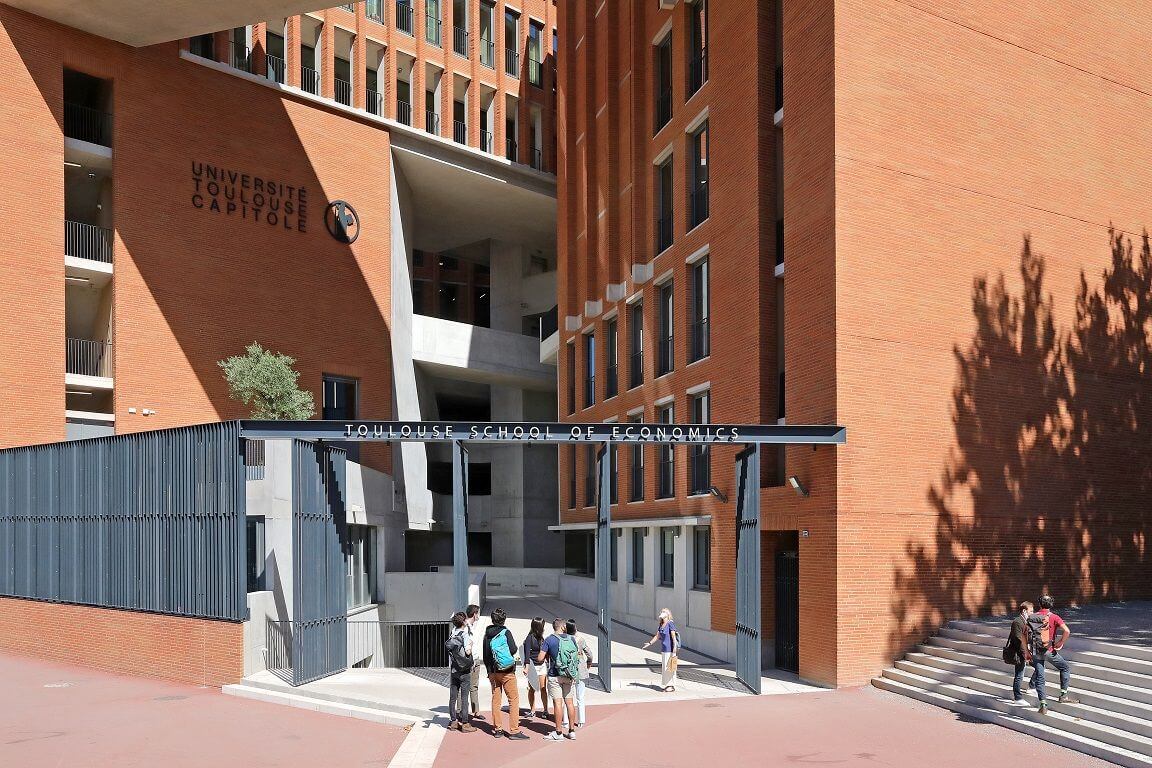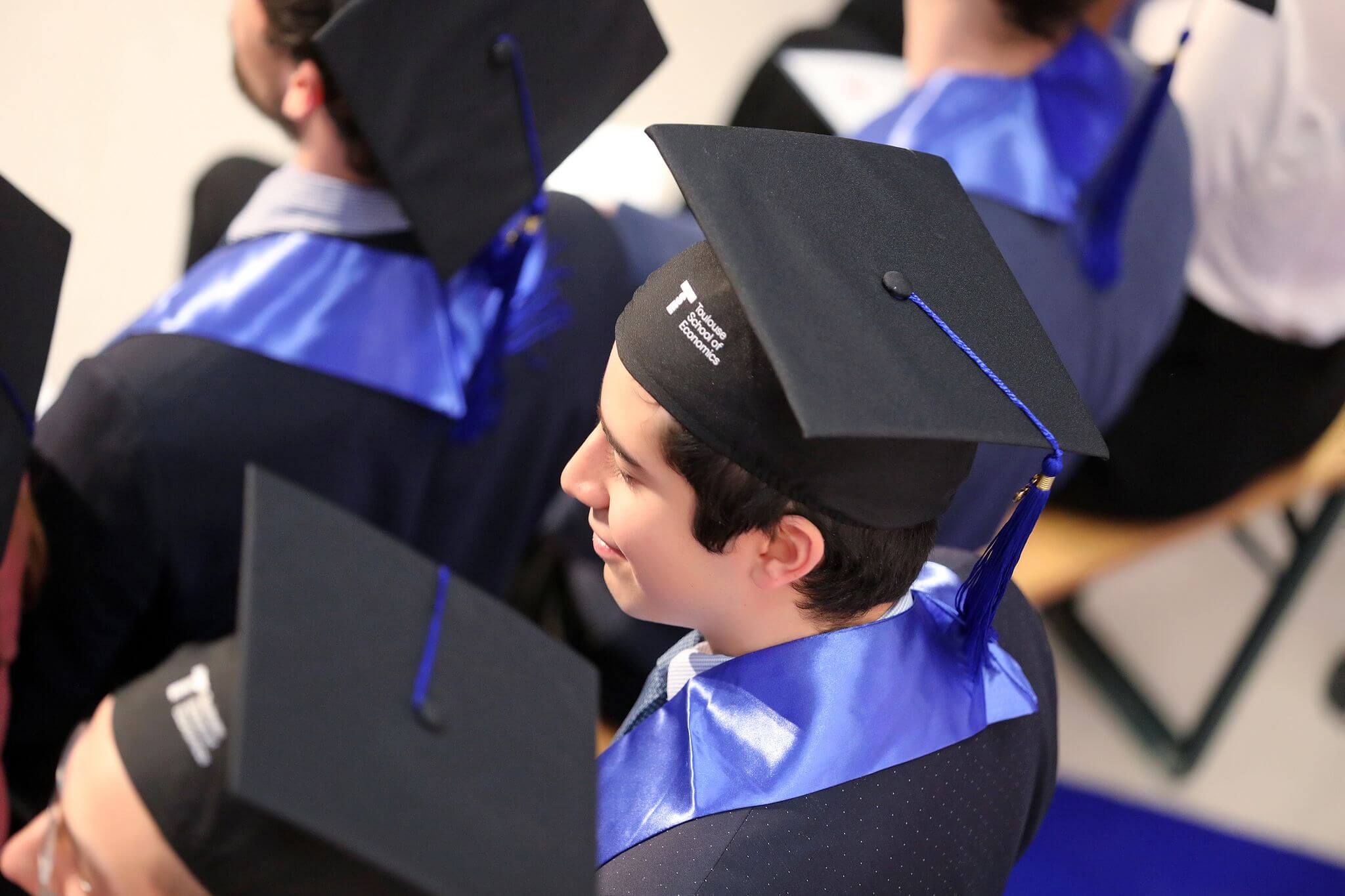Economists can serve as a force for good in the world, and no one knows this better than Yann-Ange Kouassi-Vanié. The energy economist at Deloitte, who specialises in the African energy markets, works with development finance institutions (DFIs), governments, regulators and utilities to solve complex issues related to their energy sector.
His work includes helping relevant parties initiate change in the energy sector, in addition to tackling challenges that arise. The 29-year-old knows that the right education can serve as a launchpad for economists to strengthen their understanding of businesses and governments and make a positive impact in their respective industries.
His education at the Toulouse School of Economics (TSE) has been especially useful in his career, notes the Ivorian.
“My role is to help our clients — mainly governments and utilities — solve their issues and put quantitative analysis at the heart of the methodology,” he says, adding that he applies the knowledge gained during his studies at TSE daily, “especially on topics related to regulation and econometrics.”
He chose to study TSE’s Master in Environmental and Natural Resource Economics (ENRE) programme due to his interest in the energy-related challenges African countries were facing. He sensed that Africa was closed to an energy revolution and wanted to be part of that.
Moulding tomorrow’s forward-thinking economists

At Toulouse School of Economics, students benefit from multidisciplinary teachings. Source: Toulouse School of Economics
TSE trains relevant economists to respond to modern challenges that contribute to a better world. This requires multidisciplinary knowledge as there are very rarely purely economic solutions to today’s challenges, making it necessary to combine the teachings of different human sciences.
Not unlike Kouassi-Vanié, TSE students are trained to work with governments and institutions or companies to implement and evaluate public policies or strategies designed to meet new challenges. Students develop a variety of skills, including how to create new business models and produce new services and products while respecting the new regulations in force, whether on environmental, climate or competition aspects.
Here, students benefit from a teaching, which gives them the toolbox needed to develop appropriate responses to current problems. TSE gives priority to economics and quantitative social science methods, particularly the theory of incentives — such as price modulation, implementation of taxes, informational issues and strategic interactions — and the empirical application, from theoretical, quantitative methods in social sciences to coding.
TSE’s professors engage in research that responds to economic and environmental challenges.
A value-driven education
TSE offers a variety of master’s programmes for students to specialise in their area of interest. This includes the ENRE to Markets and Organizations, Mathematics and Economic Decision and Data Science, among others, notes Flemish assistant professor of economics Mathias Reynaert.
“While the first year of the master programmes gives students a solid foundation in economic theory, econometrics and field courses, the second-year master programmes allow students to get a state-of-the-art programme in their field of interest,” says the Belgian.
As noted above, several of TSE’s programmes are multidisciplinary. This includes their Master in Economics and Ecology programme, which provides students with a unique set of skills aimed at measuring the impact of human activities on biodiversity and ecosystem functioning; and assessing, analysing, and recommending economic policies that influence human behaviour and its consequences on biodiversity and ecosystems.

TSE is training a new generation of economists who can provide society with solutions for the common good. Source: Toulouse School of Economics
TSE’s programmes stand out for several reasons — this includes how the common good serves as the driving force behind their education and research.
“Economics for the common good is the school’s slogan, and I think that matters in almost everything we do. We try to bring forward the idea that economic science is a toolbox to think about how to improve the world for the better,” says Reynaert. Their programmes also focus on economic theory, which is useful in helping students develop good empirical skills.
Students are trained to understand the functioning of markets and their imperfections. “Once that framework is understood, one can think about policy and market design to improve the world we live in,” he says.
TSE’s programmes are taught by professors who are top researchers in their respective fields, which gives masters students an edge. Reynaert, for instance, was engaged in research on the evaluation of taxes and regulations in the European vehicle market, and how it could reduce pollution.
Students are also well-prepared to step into the working world. Many of TSE’s master programmes include the opportunity of doing an internship by spending a few months at a firm or a government institution. After the internship, students write a report that explains the nature of their work, along with how their education at TSE was useful in the professional context. “As faculty, this is useful to learn because it allows us to see which elements of the curriculum are useful in practice,” explains Reynaert.
To begin your journey at TSE, click here.
Follow the TSE on Facebook, Twitter, YouTube, Instagram and LinkedIn












